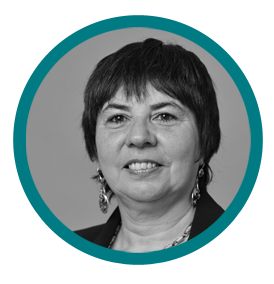« Research is organised differently in the Netherlands, Germany, Italy and France. In my opinion, the Netherlands is the most creative country, it helps you grow and progress, especially young researchers. The Netherlands are really an open country, all ideas are welcome in one way or another. A lot of innovations are made there, despite its small size. Of course, this is because new ideas are always welcomed by society, but also by the Universities, etc. The country was really essential to my scientific development. What I really liked over there was my close partnership with the company Philips Research, which lasted 13 years. »
«My main reason for moving to Germany was to satisfy my desire to work at the intersection of chemistry and physics, and to work with the medical world, which wasn’t possible in the Netherlands. The Germans are very open and welcoming, I settled in straight away. I wanted to progress in my research, particularly in the field of nanomaterials. Also, there is strong support for research in Germany. Each project head can easily obtain financial assistance and partnerships with businesses are easy to set up.
When I arrived in France, I quickly discovered that laboratory heads can have people in their teams permanently. This isn’t common in the other countries I’ve worked in. These permanent members help keep the team constant and ensures knowledge is passed along. It’s a very positive aspect of research in France. This system means there is a real continuity to our research and helps young researchers obtain work. The ISIS institute is also a special place that brings together a number of areas of expertise and is home to three Nobel Prize winners. Its excellence in the field of chemistry and the support lent by the Chemistry Research Foundation make this institute truly unique in France. It has really helped with setting up my team. »

« I have to say that AXA is a fantastic company. It’s really fascinating to have so much contact with them. Of course, the main advantage is the financial support. It has helped me support my students and my laboratory. But what I really love about AXA is that it’s a very open company, they really listen to me. AXA has helped me meet lots of different people from different fields. It’s very rewarding. We are all from different backgrounds. I’m very grateful to AXA for everything, including from a cultural point of view.»
« On the one hand, the chair focuses on the supramolecular chemistry introduced by Jean-Marie Lehn. We work on building large systems or study what we call complex systems. The end goal is to understand how functional structures are formed, like for example fibres responsible for certain related diseases or new luminescent materials. »
« On the other hand, we work with IRCAD (Research Institute against Digestive Cancer) and hospitals in Strasbourg and Berlin. We try to create new hybrid materials that have different therapeutic applications. We are creating nanocontainers that can transport medication, DNA and enzymes. These containers have very special properties that mean they can be reduced into pieces in response to a simple stimulus. This represents an alternative to chemotherapy or a way to find solutions for rare diseases. It helps achieve more personalised medicine that can better target diseases. We also work with IRCAD to develop material for treating gastrointestinal diseases. »